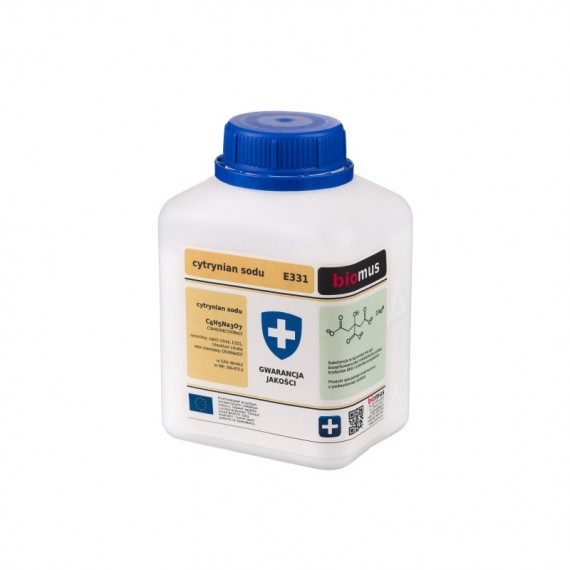Sodium citrate
Sodium citrate
Sodium citrate - an organic chemical compound from the citrate group, citric acid sodium salt.
Very soluble in water and highly hygroscopic. It occurs in the form of crystalline powder, colorless or white crystals.
Used as an acidity regulator, antioxidant, preservative, stabilizer, emulsifier, buffer substance.
Species: pure, unadulterated
Name: Sodium citrate
Synonyms: natrii citras, trisodium citrate
Genre: Clean
Cleanliness: Pure 100%
Chemical formula: C6H5Na3O7
It is used as a component of electrolytic baths protecting against oxidation, and as a reducer for the preparation of free metals in the form of nanoparticles from their salts.
In chemistry and biochemistry, among others, as a component of buffers, e.g. the so-called. SSC (saline sodium citrate: NaCl-sodium citrate). It is also a component of the Benedict reagent used to detect reducing sugars and aldehydes.
In medicine, it is used as a component of solutions for hemodialysis catheters outside of procedures to prevent the formation of blood clots.















